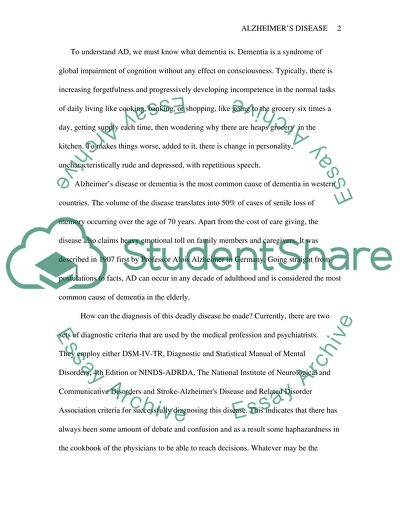Cite this document
(“Alzheimer's disease Essay Example | Topics and Well Written Essays - 1500 words”, n.d.)
Retrieved from https://studentshare.org/health-sciences-medicine/1523181-alzheimers-disease
Retrieved from https://studentshare.org/health-sciences-medicine/1523181-alzheimers-disease
(Alzheimer'S Disease Essay Example | Topics and Well Written Essays - 1500 Words)
https://studentshare.org/health-sciences-medicine/1523181-alzheimers-disease.
https://studentshare.org/health-sciences-medicine/1523181-alzheimers-disease.
“Alzheimer'S Disease Essay Example | Topics and Well Written Essays - 1500 Words”, n.d. https://studentshare.org/health-sciences-medicine/1523181-alzheimers-disease.


